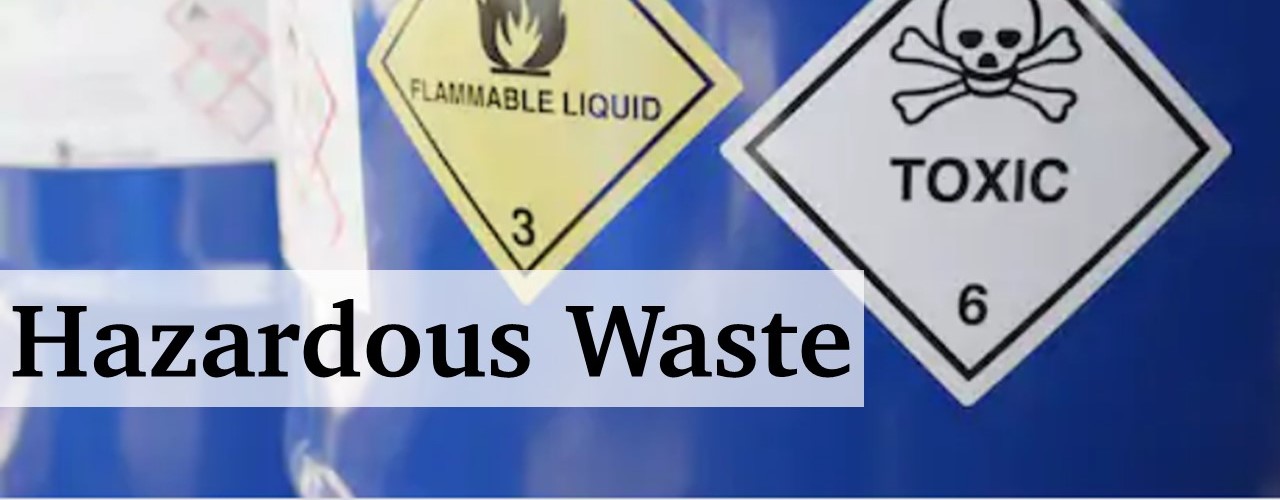
Waste materials are identified as hazardous when it is listed in the state regulations or it has certain characteristics of flammability, toxicity, reactivity, or corrosivity. These listed wastes can come from certain industrial processes or are specifically listed in Environmental Protection Agency regulations 40 CFR 261. If the material is no longer needed or can no longer be used for its intended purpose and it meets these established criteria, then it is considered a "Hazardous Waste".
At the university all waste that is suspected of being hazardous must have a waste determination performed by Environmental Health & Safety prior to disposal. If the waste material is determined to be hazardous, then EHS will pick up and dispose of the material in accordance with our waste permit through the Texas Commission on Environmental Quality.
Chemical Waste
Chemical waste products are produced in many of the teaching and research labs on campus. Chemicals cannot be discarded in the sinks or in regular trash cans for the protection of the environmental and non-lab personnel. Additionally, it is vital to the safety of lab personnel and EHS personnel that appropriate containers are used and incompatible wastes are not mixed.
All containers must be labeled with the EHS Waste label. Request labels from EHS prior to transferring waste to a container.
Biological Waste
Most biological waste produced on campus can be treated by lab personnel by chemical or steam sterilization before disposal. See the Decontamination and Waste Management pages for instructions. Full policy can be found in Section B7 of the University Lab Safety Manual.
Biological waste barrels are provided for work areas without other means for managing their biowaste or where human materials are handled.
Universal Waste
Many common waste products that might be considered hazardous are disposed of as universal wastes. These include paint, used oil, fluorescent lamps, pesticides and batteries. EHS will pick up and dispose of these wastes through environmentally responsible vendors and recycles these materials wherever possible.
Universal wastes must be segregated and packaged appropriately prior to pick up. For example, different types of fluorescent lamps should be in placed in separate boxes and each labeled with a Universal Waste label obtained through EHS.
Resources
Texas Commission on Environmental Quality Industrial and Hazardous Waste
Environmental Health & Safety
-
Address
Texas Tech University, 407 Flint Ave, Lubbock, TX 79409 (Mail Stop 1090) -
Phone
806.742.3876 -
Email
safety@ttu.edu
